At ECI we've supported our portfolio to make over 80 acquisitions. So what are some of the top lessons we've seen over that time? Investment Director, Skyler ver Bruggen, and North American Growth Specialist, Brett Pentz, share their tips for what you need to make a success of M&A:
1. Clearly defined strategy
Working on deals can be time-consuming and uncertain, so having a clearly defined strategy from the outset is vital. Management teams, and subsequently Boards, need to have open and honest conversations to be completely aligned about direction, sources of growth, and execution considerations.
2. Relationships
The most important factor in any deal (and a primary objective!) is to become a seller's favourite destination for their sale. Meet people face-to-face (especially important for UK buyers to be considered by US sellers), be honest and communicate how much you admire their business. Demonstrating patience and listening to understand seller motivations is important in building that connection as well. The stronger the relationship you build, the higher the likelihood that a deal can be made off market.
3. Keep the Board updated
Be sure to communicate progress at board meetings and key updates in between. Ensure the team is up-to-speed on progress, challenges, and responses to their questions to avoid any surprises – a standard M&A page in the board pack is recommended..
4. Identifying resource levels
Narrowing down and qualifying targets is a big resource burden, which can be amplified depending on your strategy. Is it one or two deals, or a full-on M&A strategy of 15 or 20 deals? If it’s the latter, you’ll need full-time resource. If the strategy is more limited in scope, identifying trusted advisors you can work with is critical. Carve out chunks of their time, schedule regular updates, and most importantly, hold each other accountable.

Skyler ver Bruggen, Investment Director and Brett Pentz, North America Growth Specialist
5. Strategic outreach
One tactical consideration is how you build salience when reaching out to potential opportunities, so you get a response and quickly qualify them. Success can often be found on the back of industry conferences, especially those where you’ve had an active presence – it’s a great way to bump into potential targets or build recognition so that your next message stands out in someone’s inbox.
6. Earn-outs
Structure them carefully, depending on the nature of the industry and the behaviour you want to drive. Earn-outs can work well in a recurring revenue model, where customer based revenue is stable and you are in control of the cost base (to avoid over investment that pushes down EBITDA to drive revenue). However, where revenue is more uncertain, or one-off, there’s the potential for a seller to drive low-quality, unrepeated revenue to hit the earn-out. If the acquisition is competing for the same customers as the buyer, earn-outs should be avoided.
7. Integration
A huge topic in itself, and getting it right is obviously paramount. Broadly it can be split into three buckets:
- Onboarding: define legals, financial reporting, cash management, etc.
- Systems and data: specify, choose and optimise a set of systems for running the business (i.e. Salesforce, HubSpot, Tableau) and develop a methodology for rolling these out. It doesn’t need to be in place from day one, but a clear time frame and plan is essential.
- Platform: Don’t underestimate how big platform integration and migration are, as it can take years to get right. Good integration is all about good people and requires dedicated project management. Be clear about tranches, responsibilities, timings and ownership.
8. Winning hearts and minds
Any acquisition is a time of worry and instability for employees. Spend time with the team at all levels and present an overview of what the new parent company can do for them. Outline the high-level opportunity, the potential career progression and the stability it provides. Clear communication may seem like a small task, but it’s worth taking the time to make sure you get it right.
This article was created off the back of an ECI Unlocked webinar. You can listen to the whole webinar here.
Insights
31/07/2025
How to get the most out of M&A

Avantia, the digital home insurance platform and the parent company behind award-winning direct-to-consumer home insurance brand Homeprotect is rewriting the rules of claims management, with the announcement of an industry-first AI tool named ‘Holmes’, designed to tackle fraud and transform home insurance claims.
Fraudulent claims continue to severely impact the insurance sector in the UK. According to the Association of British Insurers, fraudulent property insurance claims cost the industry more than £143 million each year. Current detection methods have limitations, resulting in slower outcomes for genuine customers, higher operational costs, and undetected fraud causing premium inflation for policyholders.
To address this, ECI has supported Avantia to develop a cutting-edge solution designed to disrupt the traditional approach to claims. Built on its existing proprietary decisioning platform, Holmes is trained to use a vast amount of data gathered internally through the customer lifecycle and supports handlers by rapidly identifying potential fraudulent activity, as well as flagging straightforward cases for quick and fair resolution.
In initial trials which have taken place in Q2 2025, Holmes exceeded expectations - improving fraud detection accuracy and highlighting cases ready for quick settlement. Avantia also found that its new AI tool proved to have much broader benefits than its original use case, making recommendations about claim coverage, payment amounts, data capture and next steps, particularly on highly complex claims. As a result, Avantia has identified significant operational and indemnity cost savings from rolling Holmes out to all claims, which will enable the business to scale faster and invest the savings in enhancing their product to the benefit of all customers. In controlled tests, Holmes not only helped make Avantia’s fraud detection rate 6x more effective, it was also able to complete payment calculations with a 98% accuracy and make additional recommendations in 50% of cases which meaningfully improved the outcome of a claim for Homeprotect and customers.
News
31/07/2025
Read Time: 1 Min
Avantia launches industry-leading AI tool to tackle fraud in home insurance

We chat with ECI's summer intern, Enayeth Hussain, about how he discovered our internship through upReach, his advice for future applicants, and the most surprising thing he has learned about private equity.
Q: How did you first come across ECI’s internship partner, upReach?
upReach is all about helping students from less advantaged backgrounds access career opportunities they might not otherwise get, whether that’s through mentoring, skills development or even supporting you with basic things, like getting clothes for interviews.
Coming from Camden, a lot of people I knew were already part of it, so I saw how much it had helped others, and I wanted to be part of that too. Through the programme, I had a mentor in real estate private equity and now this internship. That kind of access is just incredible when you're a student. You get to speak with people in the industry, learn from them, and start to build your network. It really helps bridge the gap.
Q: What was the application process and interview with ECI like?
When I saw ECI on the upReach internship list, I knew that I had to apply, getting any kind of experience in private equity as a student is incredibly rare, and I could see ECI had an amazing track record. The submission was about why I wanted to work there, the skills I’d bring, and examples of teamwork or innovation.
The interview itself was actually a really good experience. It felt more like a conversation. I was asked about my interests and my studies – it wasn’t about catching me out or testing technical knowledge. I prepped in case, as I’ve had a few interviews where they say “no technical questions” and then ask for a full DCF breakdown, but I got the sense early on that ECI was genuinely interested in hearing from me and supporting my learning. That meant a lot.

Q: What advice would you give to other applicants in the future?
Do your research properly. I’d say understand what private equity is, but more importantly, understand where ECI sits within that. Learn what mid-market PE means, what kind of companies ECI invests in, and really get a feel for the portfolio. Private equity is about finding and growing great businesses, so if you can talk about a few of them, explain what they do, and why they interest you, that’ll really set you apart.
Q: What kind of projects have you been involved in since joining?
One that really stood out was a project to write up an initial investment memo for a company. I went through the company’s background, growth, SWOT analysis – it felt like something I would do working here. But, what was really great was I was then asked to join the team meeting and share my perspective, and it surprised me how much they valued my opinion. And that happened in my second week! Due to the younger end customer, I was able to show some different sources for reviews such as Reddit as I knew they wouldn’t be leaving them on TrustPilot. It felt like I was contributing, not just observing.
Q: Has anything surprised you about private equity?
Definitely how much of it is relationship-driven. I always assumed PE was more number crunching, but what I’ve seen is that relationships matter just as much, if not more.
There are conversations happening now with businesses ECI might invest in years down the line. That long-term thinking and trust-building really stuck with me. It’s also confirmed that I want to work in PE in the future. There’s space to be entrepreneurial, to build something, and to get results in your own way. I love that balance between analytical thinking and relationship management.
Q: What are you looking to do next?
I graduate this month, and two weeks after finishing at ECI, I’ll start a full-time role as a European Capital Markets Real Estate Analyst. It’s a bit like investment banking but for property. My time at ECI will be immensely valuable in framing thinking, but also it will be a great stepping stone to move into Real Estate Private Equity if I want to change in the future.
Quick Fire with Enayeth:
What did you want to do when you were five?
A striker for Arsenal until a kid in Year 6 joined who played for QPR’s academy made me realise that the dream might already be over...
What do you do to unwind?
I’m a big fan of “bed rotting”, which is just lying in bed on my phone. It’s my favourite hobby, I’m not even joking.
What’s your song for the summer?
RS6 by Dystinct ft. Morad
If you had to go on a TV show, what would you choose?
EastEnders. Everyone there makes terrible decisions, and I think I could help them out.
Do you have any hidden talents?
I play kabaddi, which is a South Asian sport that’s a mix of rugby and tag. I was captain and president of my university team, and I am part of the England set up, although we don’t really exist at the moment since we haven’t been invited to any tournaments. So maybe not that hidden… but definitely a big part of who I am.
Insights
28/07/2025
Read Time: Min
“Quick Fire” with Enayeth Hussain

With the summer holidays in full swing, it's the perfect time to dive into a good book, whether you're poolside, on a plane, or enjoying a quiet moment in the garden. From thought-provoking non-fiction to brilliant storytelling, here’s what the ECI team are reading this summer:
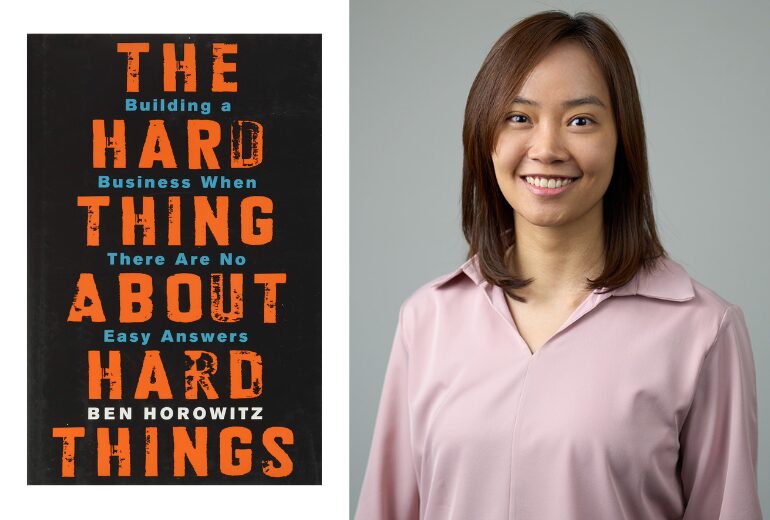
Jin Ni Ooi
The Hard Thing about Hard Things
I picked up The Hard Thing about Hard Things after a colleague at ECI recommended it, and it quickly became one of the most insightful business reads I’ve come across. Ben Horowitz doesn’t shy away from the realities of running a company. Instead, he dives into the gritty, unpredictable side of leadership that rarely get talked about. I found his honesty refreshing, especially when it comes to making tough decisions and dealing with failure. There’s a great section on managing through chaos that’s stuck with me – practical, direct, and weirdly reassuring.
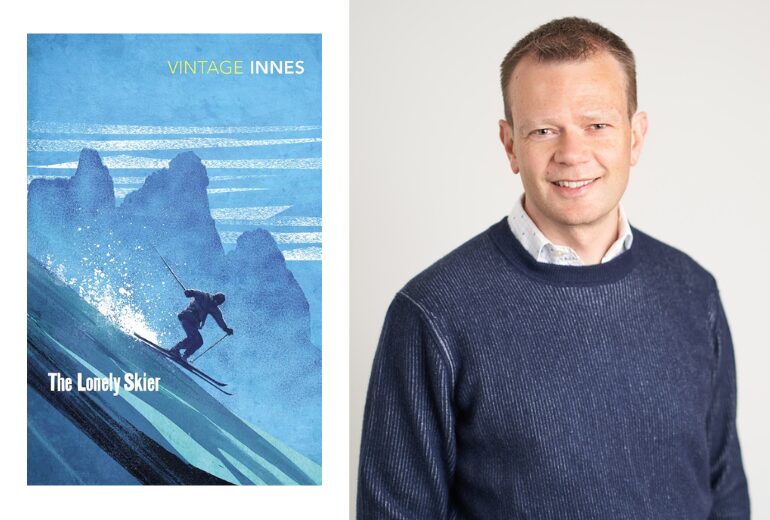
Chris Watt
The Lonely Skier by Hammond Innes
This was a thank-you gift from a friend for organising a ski trip, and it turned out to be quite a gem. The Lonely Skier is a 1940s thriller set in the Dolomites just after the war, where a down-on-his-luck ex-soldier is sent to a remote resort to pose as a screenwriter - only to get caught up in a hunt for hidden Nazi gold.
At well under 200 pages, it’s ideal if you’re busy or just need something pacey and instantly absorbing to clear your head. The setting is tense and atmospheric, the characters are boldly drawn and very much of their time, and the whole thing moves at a real clip. Hammond Innes - himself a former artillery officer - was known for his well-researched novels and his knack for creating memorable characters and compelling plots.
Not exactly business reading, but a great escapist holiday pick if you’re after something short, sharp, and gripping.

Simona Everts
Blue Sisters by Coco Mellors
I think having sisters made Blue Sisters by Coco Mellors especially engaging for me. The book follows three sisters reuniting after the death of their fourth sister, and its real strength is how it captures the complexity of sibling relationships. Whilst some parts felt a little far-fetched, I think that’s what makes it a great holiday read. It also tackles serious themes like addiction and depression in a way that’s both readable and emotionally honest.
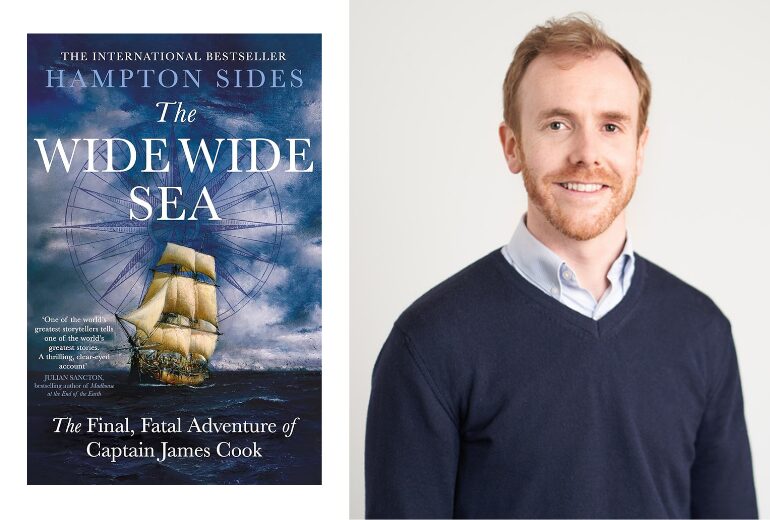
Rich Pearce
The Wide Wide Sea by Hampton Sides
The Wide Wide Sea tells the story of Captain Cook’s third and final voyage. Not just the big discoveries, but also the growing tensions and mistakes that led to his death in Hawaii. He's a character who everyone has heard of and his legacy is increasingly debated and controversial, but someone I didn't know much about. It's told through the eyes of his crew and the people he met from their diaries, letters, and verbal histories. This approach makes it very real. You’re taken right into the action, from freezing seas to tropical islands, and you see how the journey affected both the crew and the people they met. It’s a fascinating and very human story, and well worth a read

Olivia McGee
The Thursday Murder Club
I found The Thursday Murder Club by Richard Osman to be an enjoyable and uplifting read. I loved the dynamic between the main characters, especially with it being told from Joyce’s perspective. Her voice is refreshingly light and engaging – it gave the narrative a unique charm.
What surprised me most was how hopeful the book made me feel about ageing, as it presents life in a retirement village as full of possibility, connection, and even adventure. While the murder mystery itself is cleverly constructed, it is the characters who truly bring the story to life. With a film adaptation coming to screens soon, and more books in the series, I’m looking forward to seeing how the story continues to unfold, both on the page and on screen!
Insights
24/07/2025
What are ECI reading? Our summer reading list

We're delighted to launch our first fundraising event in partnership with our charity partner, the Wilderness Foundation UK: ECI Sleep Out in the Woods.
On 7th August, a group of eight ECI team members will be swapping their beds for sleeping bags and spending the night in the Foundation’s 92-acre woodland. They will be completely alone, without technology, and surrounded only by the natural world. Each person will camp in their own secluded spot, embracing solitude, reflection, and a deep reconnection with nature - all to raise vital funds for the Wilderness Foundation and the life-changing work they do.
The Wilderness Foundation is a fantastic charity focussed on protecting wild spaces and transforming lives through nature-based therapy and education. Their programmes support vulnerable young people and adults struggling with personal or mental health challenges, helping them build resilience, confidence and a deeper connection to the world around them.
We’re proud to support their mission, and if you’d like to support the team and this brilliant cause, you can donate here.

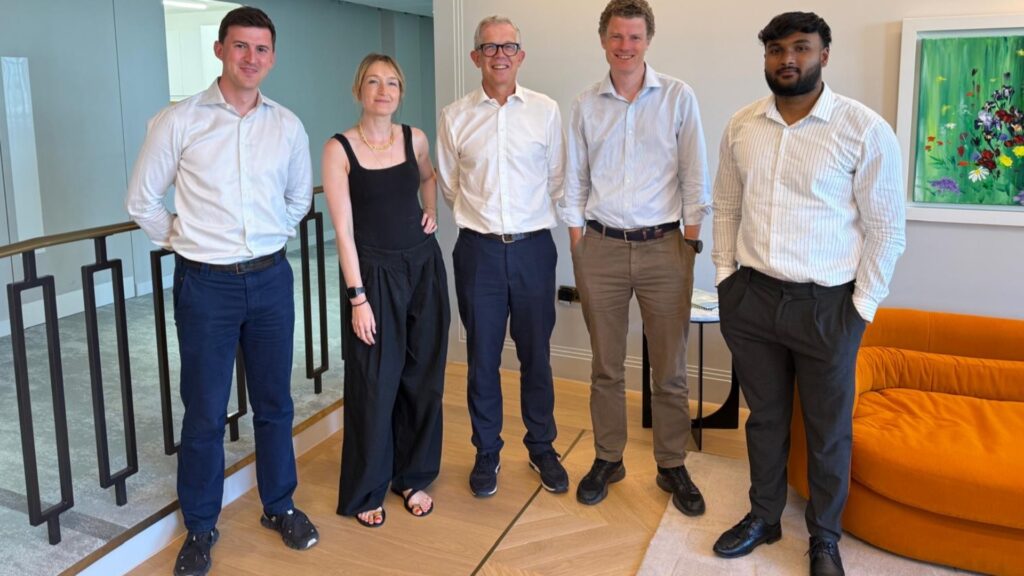
News
17/07/2025
ECI launch first fundraising initiative with Wilderness Foundation

With ECI's IT Director and Growth Specialist for Cyber commemorating his 25th year at ECI, we wanted to celebrate the work he does both at ECI and across our portfolio. We asked members of the ECI team what Ash Patel brings to ECI and the transformation he has led internally.
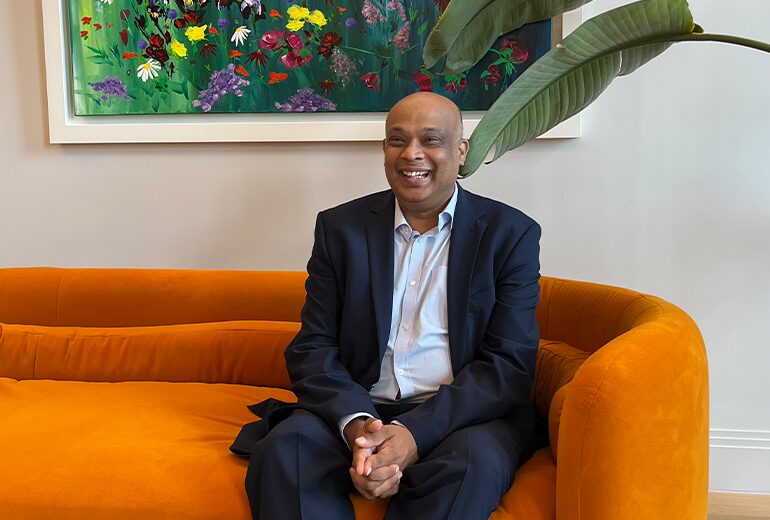
News
17/07/2025
Read Time: 1 Min
Ash Patel celebrates 25 years at ECI
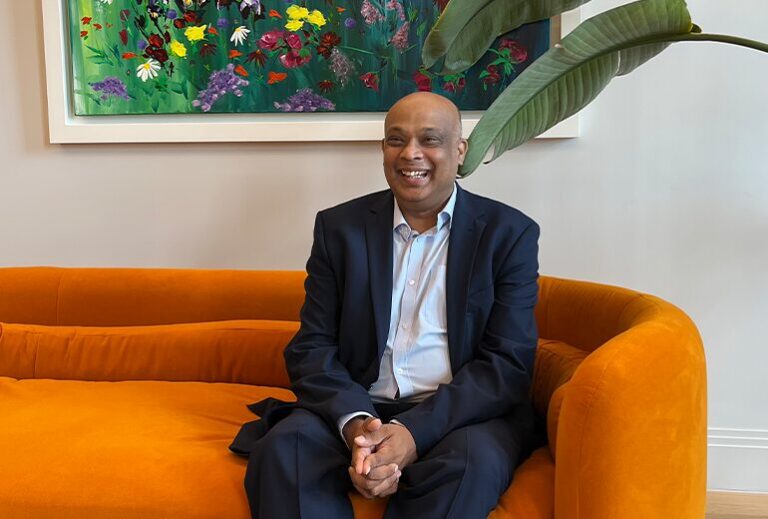
We’re delighted to share that ECI Partners has been shortlisted in the PE House of the Year: Upper Mid-Cap category at the 2025 Real Deals Sustainable Investment Awards.
The Real Deals awards are among the most respected in the industry, celebrating excellence in ESG and sustainable investment practices across private equity. With an exceptionally strong field of entries this year, we’re proud to be recognised for our continued focus on responsible investing and long-term value creation.
Over the past year, we’ve continued to embed sustainability into everything we do, whether that’s through our portfolio-wide ESG action plans or the delivery of our first ever Impact Report at the end of last year. It’s fantastic to see this progress recognised in such a competitive category, and a testament to the hard work of our team and the ambitious management teams we partner with.
You can view the full shortlist here.
News
14/07/2025
Read Time: 1 Min
ECI shortlisted for PE House of the Year at Sustainable Investment Awards

Isa Maidan recently attended the Phocuswright Conference 2025, where industry leaders and innovators gathered to discuss the future of travel. Unsurprisingly, AI was front of mind, almost all panels and presentations eventually found their way to our algorithmic friends. There was a lot of talk about what artificial intelligence could do, but what are customers doing today, what is coming imminently and what does the future look like?
What is being used today?
More and more customers are using AI to plan their holidays, using it to narrow destination options and plan broad itineraries for a trip. Whilst there isn’t data available on it, there was an agreement that LLMs are clearly part of younger customer decision making around travel. For many businesses, this represents an element of their customers’ journey that isn’t very well understood.
An interesting point to note, when people in the room were asked whether or not they had used AI to research holidays, most hands went up. When asked if they had actually booked the generated suggestion, most went back down. It’s important to take a pragmatic view that as of today, it hasn’t yet dramatically changed the booking process. However, for simpler bookings, the direction of travel is absolutely clear over the longer term.
What is imminent
The big one here: search.
The combination of a highly competitive market and customers’ strong purchase intent at the time of search has meant the travel industry has become highly reliant on PPC. As an investor, a key part of DD for many travel businesses in the last 10 years has been understanding their PPC capabilities and the sustainability of driving traffic through google. This is changing.
AI summaries are leading to fewer clicks and a shift away from Google into LLMs, which is understandably a concern for those who have optimised marketing for Google PPC. Going slightly further down the track, the recent trial and launch of Google AI mode (where search shows very few / no links) has led a lot of people to question what their future marketing spend looks like. More specifically, how do you optimise for a hyper personalised search into an algorithm that you don’t yet understand?
What is evident, is there is a significant opportunity here. Travel websites are complex, so it isn’t easy to transform a site to be optimised for GEO, but those that are agile and able to do so now will see the upside. Search disruption is also not necessarily a bad thing. A single engine dominating traffic has meant CAC often represents a significant portion of many travel businesses’ cost base. Given the general view is LLMs are likely to move to ads, a bit of competition in the search world is no bad thing.
Future
Agentic AI is the clear answer here, the idea being AI can search for, plan and book your perfect holiday based on your historical preferences and specific wants.
This raises significant questions and opportunities for a lot of travel businesses today. What does your business look like if at the extreme we move from a multi- step process today – (plan, search, browse, refine, transact) multiple times across the travel journey, to plan, review, book?
A further consideration that came up multiple times was the interplay between tech and trust. Historically customers have wanted solutions that tech wasn’t capable of delivering. Increasingly with AI it is looking like tech will be delivering solutions before customers trust it. With that in mind, rushing out a sub-optimal solution is not the answer here. Being a brand that is trusted and taking customers on that (improved) journey will be hugely important.
Whilst it’s currently unclear who the ultimate winners and losers are, what is clear is that there will be disruption and therefore opportunity ahead. As an investor, there is renewed focus on travel companies that are offering something that AI can’t easily compete with – high touch, personal, bespoke service and complex travel, where the trust threshold is high. If that isn’t your business model, it’s time to get on the front foot re AI.
If you would like to find out more about how we are helping travel brands grow, please get in touch.
Insights
10/07/2025
AI travel – today, tomorrow, the future

